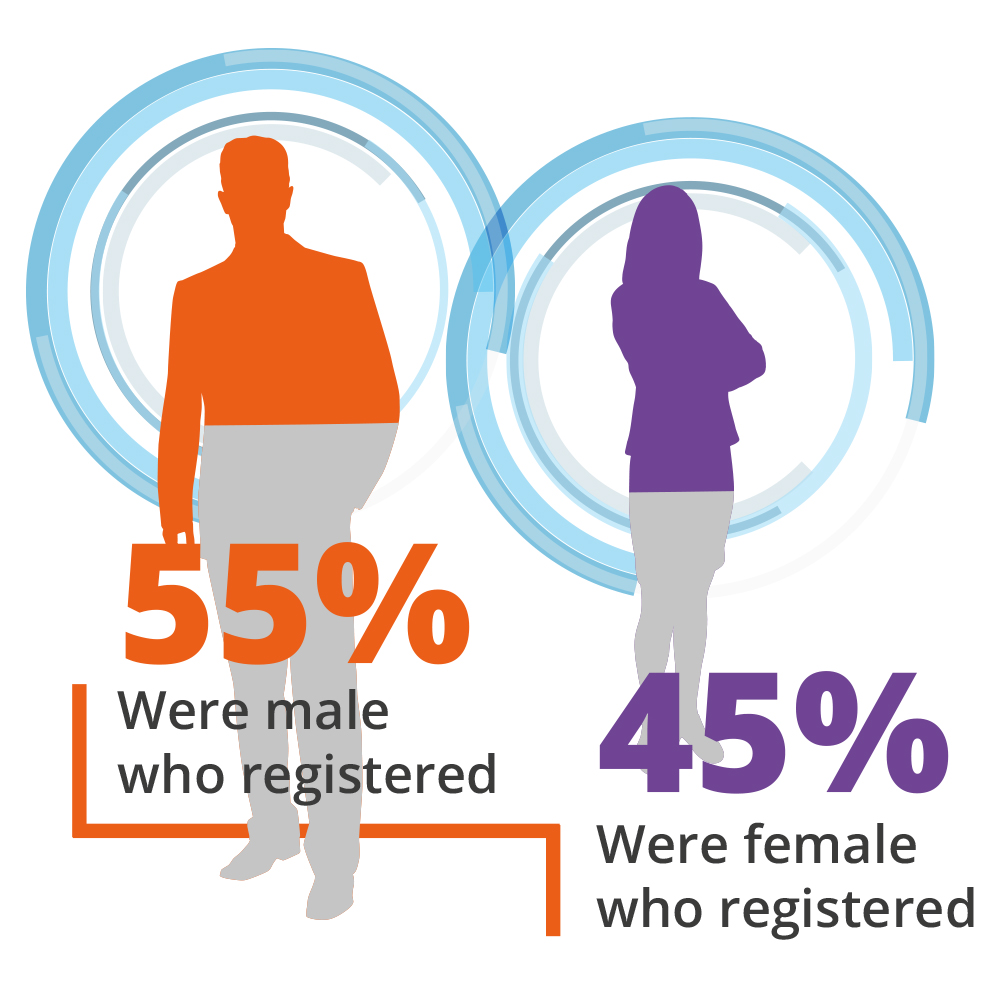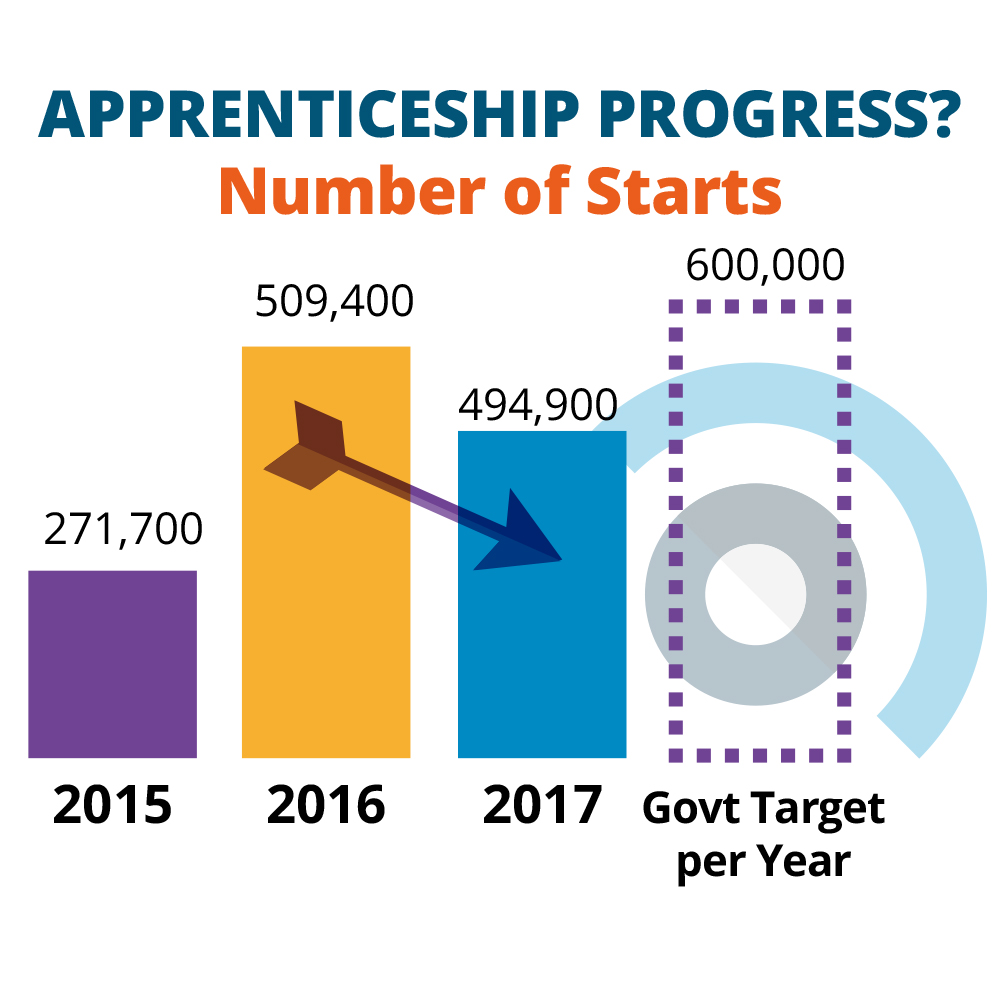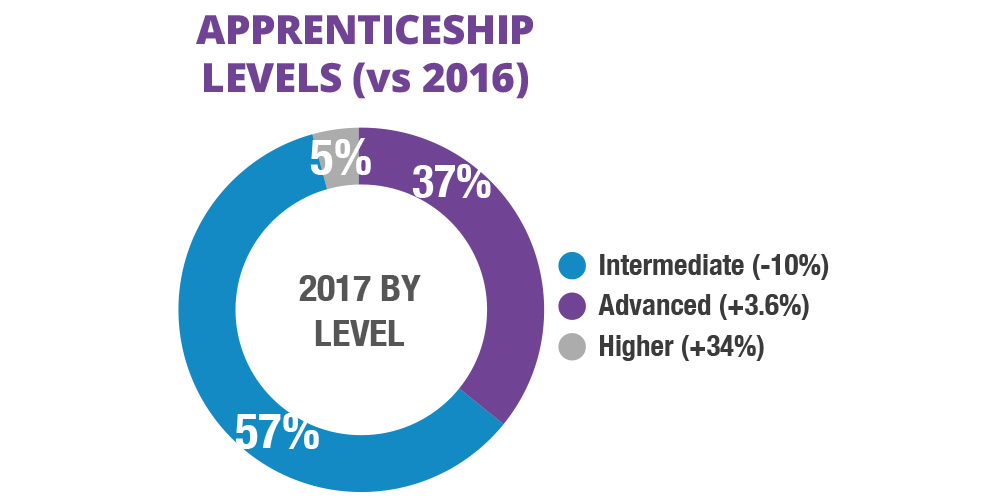A year on from the Levy, what are the implications for apprenticeship recruitment?
The levy has encouraged some organisations to look at their apprenticeship levy and use it constructively to address both future and current skills
David Allison, CEO of GetMyFirstJob discusses the repercussions of the introduction of the Apprenticeship Levy in 2017. It could be argued that the Apprenticeship Levy is not equipping the UK workforce for the upcoming challenges in the next few years, instead replacing Apprenticeships with training budgets and limiting Apprenticeship opportunities for young people. Mr Allison explores these pitfalls of the Apprenticeship Levy before looking at constructive ideas for the future of the Apprenticeships.
In April 2017, GetMyFirstJob organised a roundtable to discuss the future impact of the Levy, with representatives from a range of large employers and providers covering a range of sectors, including KPMG, Amazon, Optimity and others.
Everyone anticipated that the changes would create some difficulties – change always does. Not only was funding for apprenticeships being fundamentally changed with the introduction of the Levy, but the move to standards, the near abolition of qualifications in favour of End Point Assessments and changes to funding for small businesses meant that almost the entire apprenticeship system was being changed. Simultaneously.
Anticipating these challenges, our roundtable focused on the anticipated legacy of the Levy. The significant increase in funding, the drive to engage employers of all types to engage more actively rather than seeing apprenticeships simply as ‘free training’ as well as a real commitment to increase the quality and quantity of apprenticeships seemed to make any implementation challenges worthwhile.
One year on, the evidence suggests that the bumpy road of implementation is creating major issues for almost all stakeholders, and is certainly not equipping companies, people or the UK as a whole for challenges of the next few years. So, what’s gone wrong?
1. Apprenticeships have replaced training budgets
Many companies – and who can blame them – have viewed the levy as a tax that needs to be reclaimed. This should, in theory, drive more training delivering, the very essence of the levy. There are two major issues here. Training budgets in many companies have simply vanished as a result and staff are being directed exclusively to apprenticeship routes. No matter what the problem, the answer is an apprenticeship. This approach may allow companies to reclaim their levy tax but is undoubtedly the most inefficient and unproductive way of delivering learning.
At a time when the rest of the world is helping managers to access learning that they need at the time they need it through a range of media, we are driving them to attend MBAs or Management Degrees with 20% of their time off the job. This drives productivity down as well as ensuring that access to learning is aligned to programme structures, not business needs. Need help with Performance Management? Great news, it’s module 6 of our Management Apprenticeship, so we’ll talk about it in 18 months.
There is another issue too – as Apprenticeships can only address content defined in standards, we have built a massive lag into our skills system. One example; battery technology. This is moving incredibly quickly but is not covered adequately in any standards. To train people on this today through an apprenticeship means a group of employers need to come together, the IfA need to approve it, agree funding levels, training organisations need to create content and End Point Assessment capacity established. And this process is meant to help us up-skill and become more productive…?
2. Apprenticeships are for young people – right?
Now, I’m not arguing that apprenticeships should be exclusively for young people – there is a strong rationale for helping people acquire new skills across the board, but the essence of an apprenticeship is about helping a young person acquire the skills that will form the foundation of their careers. Any system that does not deliver opportunities for young people, or worse still, blocks their access to these programmes must be wrong.
Unfortunately, that is where we are.
Many large employers are using their levy to up-skill existing staff. There is a clear need to increase skills across the UK’s workforce to help address productivity issues, but this is almost to the exclusion of young people. The publication of statistics showing that the total volume of apprenticeships was down by 60% and then 40% for the first two quarters of the levy are only part of the story.
When you move beyond the percentages, this means that 49,000 less young people have been able to enter the world of work with an Apprenticeship programme than a year ago. At the same time, the number of over 25s taking advantage of the new apprenticeship standards has risen by 19,000. In the interests of balance, the reduction in over 25s taking an Intermediate Apprenticeship has dropped 38,500 which many would argue is a positive step towards a high-quality apprenticeship system.
Whilst some of the largest levy paying employers in the country continue to do excellent work with young people, the vast majority are using their levy pot in a different way. Furthermore, the near absence of funding for SMEs at the same time has created this collapse in the system.
Global examples of best practice – including our European neighbours – deliver outstanding apprenticeship to help young people at the beginning of their careers. We appear to have chosen to use this funding to send middle management back to University.
3. A skilled labour market fit for the future
Survey after survey has highlighted the issues of productivity and access to a skilled workforce across the UK. Brexit is only going to make this need more acute. The factors set out above make it very clear that the apprenticeship programme is not helping to address these issues. In fact, at the very time when we need to be creating a workforce for the future, all the evidence says we’re doing exactly the opposite.
The evidence? One of the best indicators is to look at labour market data. The Office of National Statistics confirmed in January that the number of vacancies has reached a record high for the fourth month in a row. Employers across the economy are not able to find the skills and talents they need. Whilst there is still no overall wage growth, evidence from the REC now suggests that employers are increasing starting salaries in a bid to get applicants. At a time when UK productivity is falling behind, upward pay pressure will make this situation worse.
So, what should be done?
It’s not all gloom and doom. The levy has encouraged some organisations to look at their apprenticeship levy and use it constructively to address both future and current skills needs, but this appears to be the exception, not the rule. Is government spending delivering an apprenticeship system that will provide skills for the future for all? At the moment, it’s a resounding no. So, what should be done?
- Free up management and technical skills and education from the straightjacket of the levy and apprenticeships.
- Provide access to apprenticeship funding for Small Businesses.
- Education and Training for Young and old.
Clearly 2018 has some challenges, but with more stability this year and some of these three solutions implemented – at least partially – we at GetMyFirstJob believe it will be a significantly busier and more productive year for candidates, training providers and employers, as we all get to grips with this new world. Indeed, we are already seeing a significant increase in activity and increasing competition for candidates in just the first six weeks of the year.
About David:
David Allison is founder and CEO of GetMyFirstJob.co.uk, an innovative web platform that improves the speed and quality of matching young people to the right apprenticeship and the right employer/ training provider.
David is available to interview further on this topic. If you are interested please contact Clare Watson - clare.watson@gmfj.co.uk
About GetMyFirstJob
GetMyFirstJob - https://www.getmyfirstjob.co.uk
The TalentPortal - https://www.thetalentportal.co.uk/
GetMyFirstJob don’t just provide apprenticeships – they care about young peoples’ futures and do everything possible to connect them with opportunities that will transform their lives. Providing choice, easy access to skills learning and that all-important break into their first job.
Press release distributed by Pressat on behalf of GetMyFirstJob, on Friday 16 February, 2018. For more information subscribe and follow https://pressat.co.uk/
Apprenticeship Apprenticeship Levy Levy Training Budgets Business & Finance Education & Human Resources Government Public Sector & Legal
Published By

07976891911
james.bridgman@gmfj.co.uk
https://www.getmyfirstjob.co.uk
Office telephone number is 023 9387 6400
Alternative contact for MD David Allison interviews: Clare.Watson@gmfj.co.uk
Visit Newsroom
You just read:
A year on from the Levy, what are the implications for apprenticeship recruitment?
News from this source:




